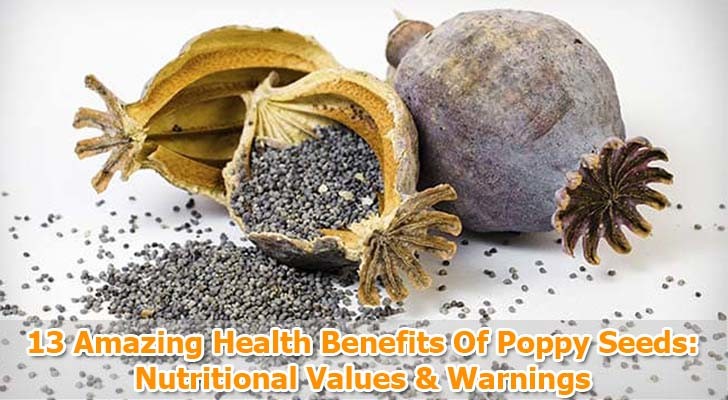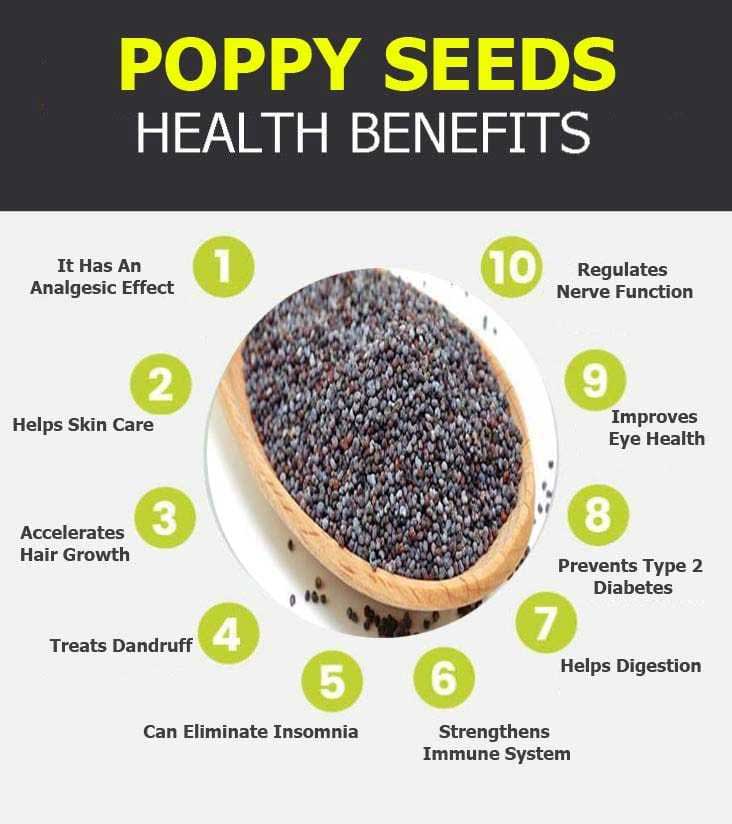Poppy seeds are originally from the Papaveraceae family, which are herbaceous plants that grow around the world. The most commonly used species in this family is Papaver somniferum, which is called Poppy. It is believed to have emerged from the Mediterranean region but is currently widely cultivated in many parts of East Asia and Europe.
These small flowers produce edible small seeds known as poppy seeds tea. Poppyseed can be found in everything from buns to crackers, and oil is often used in salad dressings, soups, breads, and cakes.
Poppy seeds are 70 to 100 different varieties of poppy seeds. The seeds can have different origins, such as the Netherlands, Australia, Spain, and Turkey, and all contain morphine and codeine, a wide variation of opiate alkaloids.
The leaves and seeds of the flower are used for cooking and medicinal purposes. Poppy seeds from these small but versatile, modest flowers are extremely strong, and even small doses can have measurable effects on the body. The petals of the poppy flower have an opium-like smell when they are fresh, but are odorless when they are dried.

Poppy Seeds Nutrition
Poppy seeds have high amounts of unsaturated fat but are low in cholesterol and sodium. It is also a good source of fiber, calcium, iron, magnesium, phosphorus, and potassium.
The seeds are packed with vitamins such as vitamin C, thiamine, riboflavin and iron, and also contain certain alkaloids, which can have strong effects on the body when consumed in large doses. Morphine (and unfortunately heroin) is derived from seeds of this plant.
What Are The Health Benefits Of Poppy Seeds?
Let’s take a closer look at the strong health benefits of poppy seeds.
It Has An Analgesic Effect
Morphine is one of the primary active ingredients and, as you probably know, is one of the strongest painkillers used in hospitals. If you consume seeds, it can alleviate pain, relieve headaches, and even speed up healing.
The rich combination of nutrients found in poppy seeds, including zinc, can help improve metabolism to accelerate the healing process.
Helps Skin Care
Antioxidants and high amounts of linolenic acid help maintain skin brightness in poppy seeds. The paste, made by adding milk or water to the seeds, moisturizes skin, providing a renewal.
When a few drops of lemon juice are added to the paste, it can be used to treat itchiness, eczema, burns or any skin inflammation. If you add yogurt to paste, it can also be used as a face mask to reduce stains.
Accelerates Hair Growth
Poppy seeds are an excellent source of unsaturated fatty acids and minerals such as calcium, zinc, and magnesium, which contribute to hair health. A paste made by adding water or milk from these small seeds, when mixed with olive oil, promotes hair growth and can eliminate hair breaks.

Treats Dandruff
Dandruff, which can lead to hair loss, can also be treated with a mixture of poppy seeds. As a natural solution, you should crush seeds and mix them with yogurt and a teaspoon of pepper.
Apply directly to scalp, leave for half an hour and rinse. Regular use of this method will help to cure dandruff and protect hair health.
Can Eliminate Insomnia
According to one study, drinking poppy tea before bedtime may make easier for you to fall asleep. It can also help you sleep better when you mix and drink some seed with milk.
It is very rich in alkaloids, which lower the body’s cortisol levels and reduce stress. Pay attention to the amount of tea you consume because of the morphine element. It is better to consult your doctor before giving it to children.
Strengthens Immune System
Studies have linked the presence of zinc directly to an improvement in the strength of the immune system. This mineral, which has significant levels in each poppy seed, can stimulate the production of white blood cells and increase the body’s response to foreign substances and agents.
Improves Heart Health
One of the other important minerals found in it is iron, which is the most important component in the production of red blood cells.
By increasing your iron intake, you can increase blood flow so that vital parts of your body are oxygenated. This can reduce symptoms of anemia, increase energy levels and speed up the healing process.
Helps Digestion
If you have constipation or diarrhea, you should add fiber to your diet. Poppyseed has a high level of dietary fiber that helps to collect feces or promote peristaltic movements to regulate bowel movements. Thus, it promotes the normal cycle in your intestine.
Prevents Type 2 Diabetes
Low zinc levels can be a major indicator of type 2 diabetes. To protect yourself from an outbreak of type 2 diabetes that could be almost global, you can quickly get rid of this problem by adding zinc (in the form of poppy seeds) to your diet.
Improves Eye Health
As we get older, our eyes naturally begin to see less, but there are some things we can do to stop this process.
Antioxidant compounds are great for protecting our eyes. Poppy contains significant amounts of zinc, which can reduce the occurrence of macular degeneration and keep eye health strong.
Regulates Nerve Function
Many people are unaware of the role calcium plays in our body, but this mineral is very important when comes to the functioning of our nervous system.
The high levels of calcium found in poppy makes a very impressive nerve tonic and can help prevent nerve disorders and promote healthy neural function.
Supports Bone Health
Calcium is also an integral part of bone mineral density, so calcium in the poppy prevents our bones from slowly becoming weakened as a result of osteoporosis or other bone-related disorders and can remain strong and resistant as we age.
Balances Blood Pressure
Analgesic and anesthetic properties may otherwise protect the health of the heart. Potassium in the seeds acts as a vasodilator promotes normal blood flow in the body and reduces tension in the arteries and blood vessels.
This can help prevent the development of atherosclerosis and heart problems such as stroke and heart attack.
Considerations For Poppy Tea
Note that poppy seeds contain strong ingredients that are well above average levels. Consuming too much is not the same as taking morphine, but should be used with extreme caution and should only be obtained from trusted herbalists and alternative medicine practitioners.
The use of poppy and seeds is prohibited or restricted by some countries, so consult your healthcare professional before use.
